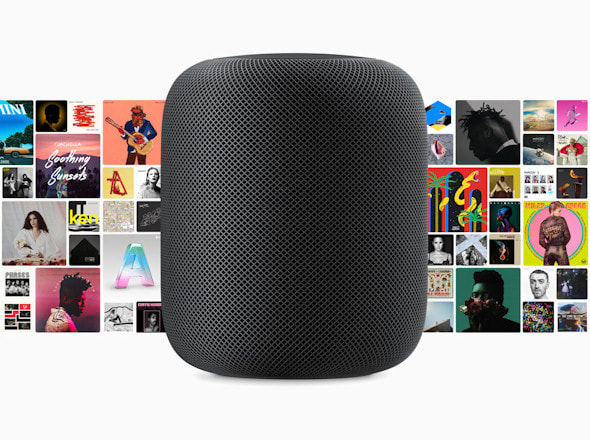One of the reason that HomePod skeptics are down on the HomePod is because they perceive Apple as being late to the intelligent assistance game. I disagree. Apple has been steadily positioning its pieces on the battlefield for the last three years. Further, Apple may have more physical assets in place than anyone except maybe Amazon. Apple has sold far more Apple Watches than Amazon has sold Echos. But Amazon has been licensing Alexa for use on many other devices such as thermostats and cigarette lighter adapters. So it’s hard to say how many distribution points Amazon actually has.
But intelligent assistance is less about a specific hardware factor and more about convenience. It is also more about software and microphones. Amazon itself has proved that point. That’s why Alexa is now in car stereos and refrigerators. The physical base station appeals in certain use cases, but otherwise the base station has a lot of drawbacks. It can’t follow you through your day the way that your Apple Watch can. It can also get confused if you have two base stations in your house and you’re in the middle. And who wants to upgrade all of their base stations when a better unit is released?
But Amazon has convinced Apple that there are some households for whom a base station makes a lot of sense. Some people hate wearing watches, and if there is one place in the world where you’re likely to leave your phone laying in another room on the counter, it’s at your home. So Apple finally relented and is now selling their own countertop music device. But this is not Apple’s answer to the personal assistant that everyone is asking for. This is Apple’s latest Trojan Horse in their future personal assistant push.
Amazon proved that there is a time and a place for the home base station. But they’ve also proven that this is only a subsegment of the greater movement. In the near future, most people who use Alexa may not even own an Echo. This may even be why Amazon gave Alexa a name that was separate from the device (Echo). The two don’t necessarily go together. And Amazon still hasn’t figured out a way to migrate from community assistant to be everyone’s personal assistant.
Apple has believed all along that the Apple Watch is a superior solution to Amazon’s Echo from a hardware perspective. It’s both mobile and personal. That’s why the Apple Watch has received much more attention that the HomePod. The HomePod coming out three years after the Apple Watch shows where Apple believes it ranks in importance. And I don’t disagree with them. Intelligent assistance is more about software than hardware, and Siri isn’t ready for a device whose whole reason to be is to know what you want or do what you need.
Even Apple will concede that Siri has a long way to go to match Alexa’s growing skill set. But the software part is something that Apple has always been good about keeping a secret. The tech world was shocked when Apple unveiled that they had invented the Swift open source programming language. No one saw it coming. Likewise with Apple’s big Augmented Reality addition at WWDC last summer. We heard Tim Cook drop little tidbits about how augmented reality would one day be a really big thing. But no one expected the depth of Apple’s commitment when iOS 11 was unveiled.
Apple is missing two pieces from really beginning their assault on intelligent assistance. First, to migrate from a community assistant to a personal assistant, Siri needs reliable voice recognition. Second, Siri needs to expand greatly as a platform.
Apple recognizes that a community assistant is better than nothing but still a sub-optimal solution. I think Apple is unwilling to offer an Echo-like device with Echo-like flaws. They want a superior solution that makes everyone say that someone finally got it right. Unlike Google, Apple wasn’t willing to offer FaceID until they had a reliable solution. I predict that Apple will follow the same pattern with intelligent assistance and stun the world with VoiceID. This will allow mom, dad, or the kids to ask Siri to read their most recent iMessages without confusion. Siri at that point could become the personal assistant to everyone in the house.
So, is the HomePod too little too late? Absolutely not. It’s not too little because the main job of fighting the Amazon Echo will fall to the Apple Watch. The HomePod is more like a supporting cast member. And it’s not too late because Apple is still working on making Siri more powerful.
In fact, the HomePod is either right on time or early. Siri isn’t ready for prime time yet, and Apple is already prepositioning their countertop devices all across America. At some point in the future, Apple will release a new and improved Siri that won’t have a ramp up period. There will already be millions of Apple Watches and HomePods out there ready for an infusion of new intelligence. My guess is that if Apple is now willing to sell their HomePod that the more powerful Siri isn’t going to be too far behind.
Now available in iBooks —> The Tesla Bubble




 RSS Feed
RSS Feed